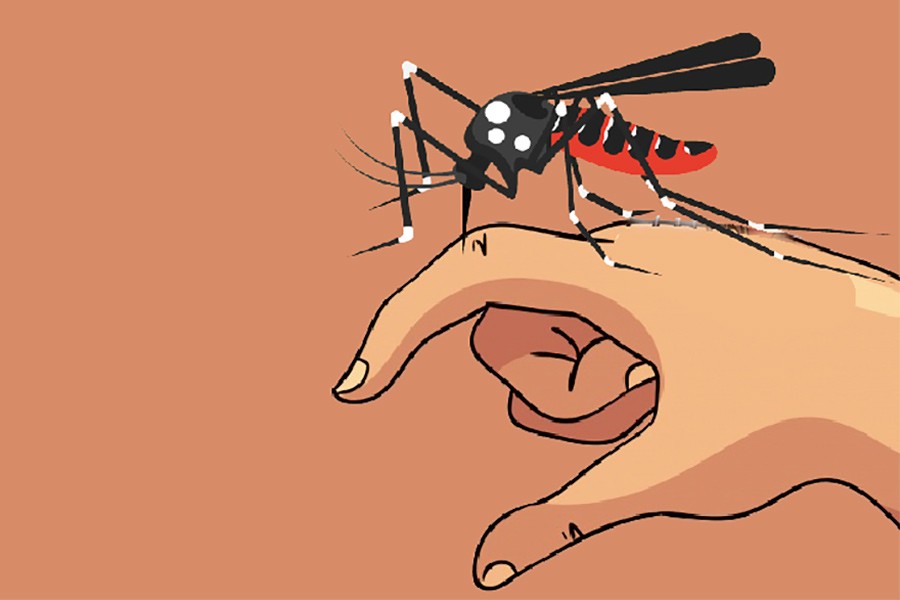Mosquitoes have of late become a dangerous insect spreading various types of diseases across the country. With the advent of warmer season the city dwellers around the country are terribly smarting from mosquito bite.
To get rid of the attack of the swarms of little but menacing insects, mosquito coils, spray and mosquito nets have proved futile. Experts already warned of a record increase in mosquito population in the country by March. But the two Dhaka City Corporations' measures taken to check the perilous insects in the city appear to be inadequate. Two recent surveys, one by the Directorate General of Health Services (DGHS) and the other by a team of researchers from Jahangirnagar University, warned that the mosquito population density in the capital is likely to multiply in the next two weeks.
People in different parts of Dhaka city are now keeping complaining about intolerable mosquito-biting both at night and day. Besides, after the city corporation elections the city corporations' drives against the insects appear to have become a slipshod work. In Dhaka, construction sites have turned into a common breeding ground for mosquitoes as is the case with other cities. The under-construction buildings are usually increasingly becoming breeding ground for mosquitoes, the DGHS survey found.
It may be recalled that a record number of people were affected in a widespread dengue outbreak last year. As a result, the health directorate suggested taking necessary precautionary measures beforehand to thwart another calamity of dengue. The health directorate said that there is a lack of awareness and even reluctance on the part of construction companies to address the issue. This is further compounding the situation. Usually in the cities' construction sites high numbers of mosquitoes are found in water-filled barrels.
Presence of mosquitoes at most construction sites, experts say, is likely to grow during the monsoon. Only by focusing on larvicide rather than eliminating the breeding grounds the issue cannot be addressed properly. Several water bodies in the city have become virtually breeding grounds of mosquitoes. But the authorities concerned did not take any steps to clean those.
Experts said that the number of culex mosquitoes, which spread diseases like filariasis and avian malaria, has gone out of control in Dhaka. The factors which are mainly to be blamed for the situation are lack of effective measures by the city corporations and the absence of proper logistics.
The covered manholes also aggravate the problem. This is because sprays cannot reach the stagnant water beneath the covered manholes. This then becomes ideal breeding grounds for Culex.
From mid-February, rise in temperature is leading to increase in organic matter in water bodies. This provides food as well as a conducive breeding environment to mosquitoes. In consequence, existing larvae will mature in the next fortnight. Unless larvicide is sprayed extensively, the situation then may turn serious. The trend in rising mosquito population will continue if city corporations do not start taking effective measures right now. This will invite a disaster for city dwellers. This is true for almost all cities in the country.
Sarwar Md. Saifullah Khaled is a retired Professor of Economics and Vice Principal at Cumilla Women's Government College, Cumilla.


